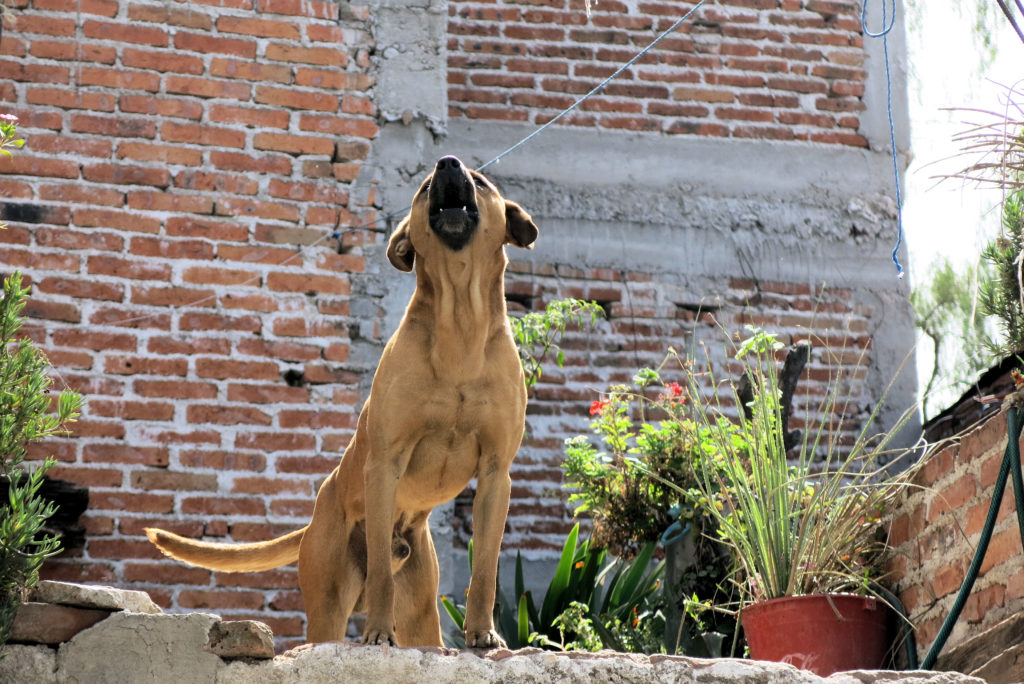
On a flat rooftop in Tlacolula, Mexico, a shepherd dog moves as the shade moves throughout the afternoon and, by this, keeps its own counsel.
At other times, the shepherd patrols the perimeter of its world. On market days, for instance, it’s excited by goats herded down the main avenue, and by the man hawking knives and pharmaceuticals belted to the underside of a car trunk. It gawks at scuffling turkeys cuffed at the ankle, at a stained boy running a hand through a bulk sack of sesame seeds while talking on a cellular phone. It pants on the greater influx of flies.
The shepherd has a privileged position, of sorts, above everything going on—privy to the women arriving with coils of garlic stacked like crowns on their heads, the bribe in the back doorway, the shimmering shards of fruit dumped down a drain. It smells the pink plastic buckets for sale next to rusted machetes long before they are unpacked from the mysterious truck; on feast days, it hears the whispered prayers of the Virgin of Guadeloupe towed toward the square on a cart, her plywood radiance catching on clotheslines.
The shepherd witnesses more of the village, small as it is, than anyone below. And, of course, it growls and barks—which is its purpose and its fate—barks, in many directions: prophecies, warnings . . . .
But its soundings derive as much from the night as the day, for it’s in the night, when it dozes above the village, that the shepherd swirls upward in its dreams and becomes now a man, now a woman, and flies over the valley. The shepherd swoops and takes a bite from the succulent moon. It calls down the stars, gathers them, and sails over the mountains and nations, museums and oceans, scattering them, each light aching with the history in a human hand, each light alien and a home. The shepherd can’t gather all the stars nor scatter all that are held by its swirling form. The cities and deserts and highways—each human dream there—snag on its wings and weight them until they bow the air, drawing forth a chord of sorrow and elation.
That’s why the shepherd growls and barks. An intruder may be invading, but more often the shepherd is trying to articulate its flying through the night, and all the music and manifold weight of life in the village and beyond. Its tongue dangles, hoping to reclaim the taste of the moon or touch the truth present in the shade of the moment. The beast is loyal in this, a poet whom few understand, but ambitious and no one’s pet.
Donald Morrill is the author of five volumes of nonfiction and poetry, the most recent of which are The Untouched Minutes and With Your Back to Half the Day, respectively. His essays have appeared recently in Arts & Letters and The Georgia Review. He teaches at the University of Tampa and is poetry editor of Tampa Review, but during the spring 2006 semester he will be teaching in the Nonfiction Writing Program at the University of Iowa.
